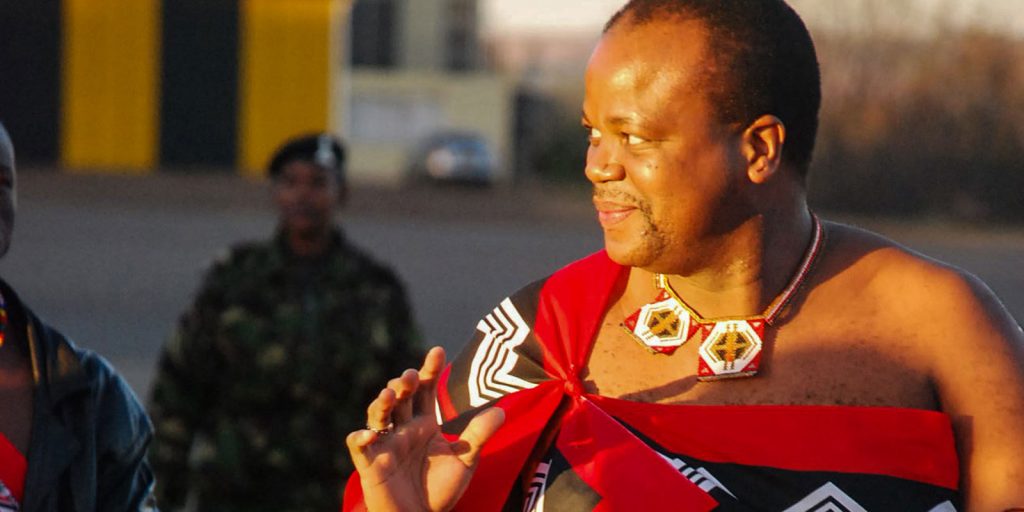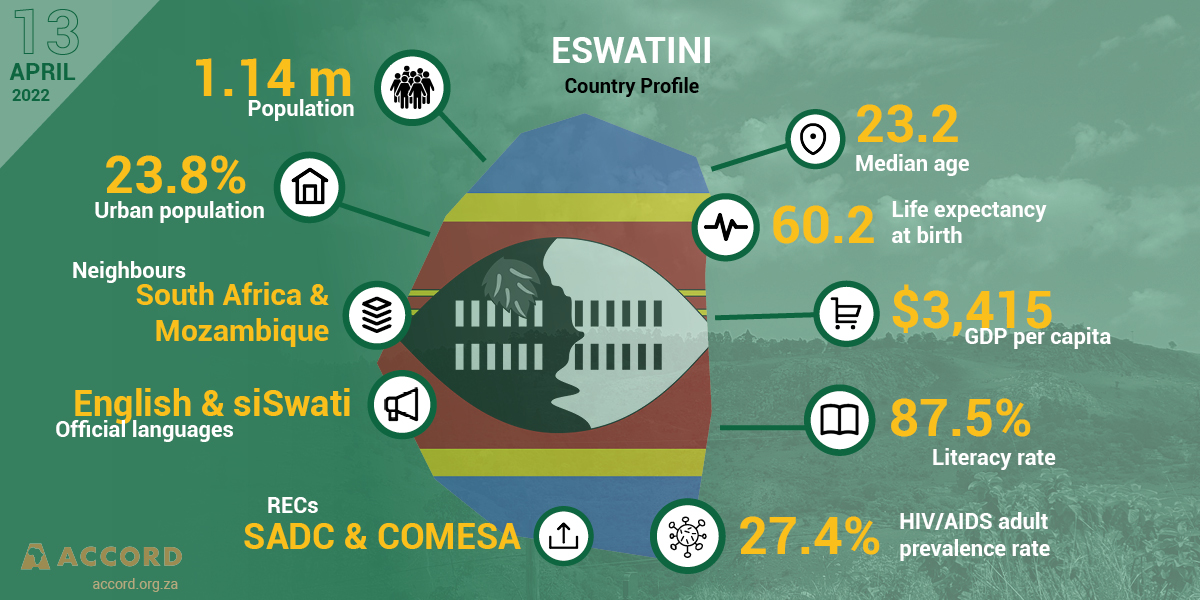Protests in the Kingdom of Eswatini began in mid-2021 following the death of a university student, Thabani Nkomonye, in police custody. The student protests soon expanded to include people from various sectors of society who had grievances about the lack of democracy and a system of government that they said served the interest of the monarchy rather than the people. It is not the first time that there have been calls for greater levels of democracy in Eswatini. However, the scale and intensity of the protests, including the level of violence that the security forces used to suppress the protests, has drawn greater regional and international attention to Eswatini than ever before.
While there is a clear sentiment of frustration towards the monarchy and the current climate in Eswatini amongst protestors, there is differing sentiment towards what the end goal might be @katharine_bebs
Tweet
Some sectors of society have responded to the disproportionate use of violence against protesters by resisting the state through other means. For example, some nurses refused to treat injured police officers, after they claimed that the police shot at nurses during protests. Members of society began handing in petitions that called for the right to elect the Prime Minister, with protests escalating after the acting Prime Minister banned the delivery of petitions. Three Members of Parliament (MPs), Bacede Mabuza, Mthandeni Dube and Mduduzi Simelane soon became vocal supporters of the protests, with two subsequently arrested on terrorism charges and the third fleeing to South Africa.
Political parties remain banned in the Kingdom, with many leaders and parties in exile in neighbouring South Africa. However, a number of political organisations and trade unions are claiming to be driving forces behind the current unrest in Eswatini. The People’s United Democratic Movement (PUDEMO), Economic Freedom Fighters Swaziland (EFF Swaziland) and the Swaziland Liberation Movement (SWALIMO) are a few of the major political actors operating in Eswatini. Additional forces behind the protests include the Swaziland National Union of Students, Swaziland Federation of Trade Unions (SFTU), the Swaziland National Association of Teachers (SNAT) and Swaziland Federation of Labour (SFL) and the Trade Union Congress of Swaziland (TUCOSWA). Many of these organisations have joined the Multi-Stakeholder Forum (MSF), which is made up of political parties and civil society organisations dealing with issues of governance, democracy, business and labour amongst others. While MSF might be a platform to aide in producing consensus amongst the different stakeholders, it appears that an agreed solution is far from clear.

In response to the protests, King Mswati III has said that those calling for the abolition of the monarchy are anti-Swazi and that he cannot meet with protesters who he says are only calling for democracy because they ‘drink alcohol and smoke dagga’. However, King Mswati has since agreed to hold a national dialogue in the setting of a Sibaya. While those protesting have expressed a willingness to sit down for a national dialogue, they have rejected the Sibaya platform.
The Sibaya is an annual traditional gathering of citizens in the Kingdom but it is perceived to be a problematic platform in which to hold a national dialogue. This is because the King controls almost every aspect of the Sibaya, including giving permission to speakers during the event. Should King Mswati grant permission to anti-monarchy and/or pro-democracy activists to speak at the Sibaya, this will give activists a chance to address the King and air their grievances. However, the format of the Sibaya is not one of dialogue, so while activists might address the King, King Mswati is not obliged to engage with activists further. The Sibaya does not allow for all parties to interact as equals, as the King holds all the authority in a setting that carries the weight of the monarch’s traditional power over all EmaSwati. It is thus unlikely that a national dialogue held as a Sibaya will produce any real engagement amongst the parties and as such produce any meaningful breakthroughs to address the current impasse.
King Mswati has since agreed to hold a national dialogue in the setting of a Sibaya. While those protesting have expressed a willingness to sit down for a national dialogue, they have rejected the Sibaya platform @Katharine_bebs
Tweet
Once the stakeholders get to a point of national dialogue, the question of what will happen at this dialogue will arise. While there is a clear sentiment of frustration towards the monarchy and the current climate in Eswatini amongst protestors, there is differing sentiment towards what the end goal might be. There are a number of options available to bring an end to the current crisis. One of those options is the abolition of the monarchy and the establishment of a multi-party democracy. However, this option may be difficult to achieve, as the position of the King is not only upheld by absolute political power in the Kingdom, but also reflects a deep cultural significance. For many EmaSwati their national and cultural identity is tied to the monarchy, and severing such ties will not be easy. Additionally, questions will likely be raised by those supporting the monarchy of the rationale of replacing a traditional African form of governance, which has governed EmaSwati for centuries, with a Western form of governance that, until now, is alien to the societal practices of EmaSwati.
Nevertheless, other options are available, such as limiting the King’s powers in the form of a constitutional monarchy. Such an arrangement would give EmaSwati the ability to elect their head of government, whilst maintaining the King’s cultural significance as the head of state. The extent of the King’s powers will need to be negotiated. This compromise rests on the monarchy’s willingness to limit the King’s absolute powers, a thought that up until now, the monarchy seems unwilling to entertain. While a separation of powers would answer the call for democracy, it is unlikely to satisfy those who carry resentment towards the monarchy and wish to abolish the system.
Another possible option is to maintain the current system of absolute monarchy with the abdication of King Mswati III. This solution will satisfy both those who are not happy with the performance of the King as ruler and those who believe poor governance is the root of current crisis and not the monarchical system. However, as there are a number of stakeholders and protesters involved in the current crisis in Eswatini, it is hard to determine if the protests are pro-democracy, anti-monarchy or anti-King Mswati. It is most likely a combination of all three, and finding a solution that has enough buy-in from all the major stakeholders, including the monarchy, is likely going to be hard.
Katharine Bebington is a Programme Officer in the Research Unit at ACCORD.


